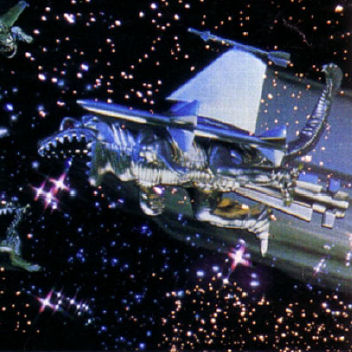 Imagic, recently formed from a group of ex-Atari programmers, releases its first wave of cartridges for the Atari VCS home video game system, including Rob Fulop’s Demon Attack, a game which quickly draws the legal ire of Atari itself.
Imagic, recently formed from a group of ex-Atari programmers, releases its first wave of cartridges for the Atari VCS home video game system, including Rob Fulop’s Demon Attack, a game which quickly draws the legal ire of Atari itself. ![]()

 Imagic, recently formed from a group of ex-Atari programmers, releases its first wave of cartridges for the Atari VCS home video game system, including Rob Fulop’s Demon Attack, a game which quickly draws the legal ire of Atari itself.
Imagic, recently formed from a group of ex-Atari programmers, releases its first wave of cartridges for the Atari VCS home video game system, including Rob Fulop’s Demon Attack, a game which quickly draws the legal ire of Atari itself. ![]()
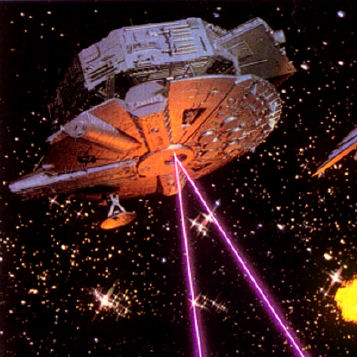 Imagic, recently formed from a group of ex-Atari programmers, releases its first wave of cartridges for the Atari VCS home video game system, including Bob Smith’s Star Voyager, a space shooter.
Imagic, recently formed from a group of ex-Atari programmers, releases its first wave of cartridges for the Atari VCS home video game system, including Bob Smith’s Star Voyager, a space shooter. ![]()
 Imagic, recently formed from another wave of ex-Atari employees, releases its second wave of game cartridges for the Atari VCS, including Dennis Koble’s Atlantis.
Imagic, recently formed from another wave of ex-Atari employees, releases its second wave of game cartridges for the Atari VCS, including Dennis Koble’s Atlantis. ![]()
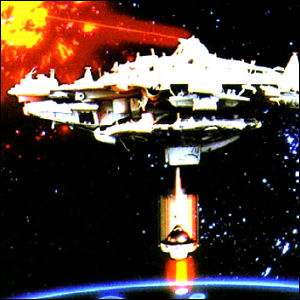 Imagic, recently formed from another wave of ex-Atari employees, releases its second wave of game cartridges for the Atari VCS, including Rob Fulop’s Cosmic Ark.
Imagic, recently formed from another wave of ex-Atari employees, releases its second wave of game cartridges for the Atari VCS, including Rob Fulop’s Cosmic Ark. ![]()
 Imagic, recently formed from another wave of ex-Atari employees, releases its second wave of game cartridges for the Atari VCS, including Brad Stewart’s Fire Fighter.
Imagic, recently formed from another wave of ex-Atari employees, releases its second wave of game cartridges for the Atari VCS, including Brad Stewart’s Fire Fighter. ![]()
 Imagic releases the Demon Attack cartridge for the Intellivision home video game system, drawing a lawsuit from Atari over its similarities to Phoenix, an arcade game which Atari has licensed for home console ports.
Imagic releases the Demon Attack cartridge for the Intellivision home video game system, drawing a lawsuit from Atari over its similarities to Phoenix, an arcade game which Atari has licensed for home console ports. ![]()
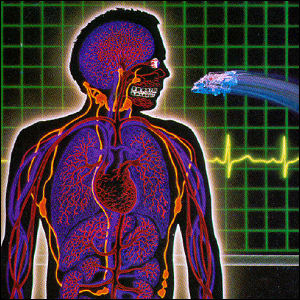 Imagic releases one of its first games for the Mattel Intellivision home video game console, Rick Levine’s Microsurgeon. With impressive graphics, the game puts players in the bloodstream of sick patient, where they must blast diseased cells with lasers to save the patient. Designed solely for Intellivision, Microsurgeon is a game that Imagic does not plan to port to the Atari 2600.
Imagic releases one of its first games for the Mattel Intellivision home video game console, Rick Levine’s Microsurgeon. With impressive graphics, the game puts players in the bloodstream of sick patient, where they must blast diseased cells with lasers to save the patient. Designed solely for Intellivision, Microsurgeon is a game that Imagic does not plan to port to the Atari 2600. ![]()
 Imagic releases the Atlantis cartridge for the Intellivision home video game system.
Imagic releases the Atlantis cartridge for the Intellivision home video game system. ![]()
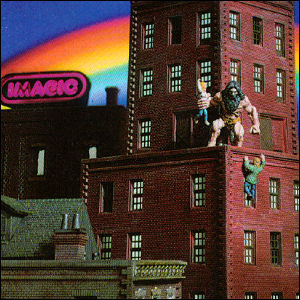 Activision releases the Beauty & The Beast cartridge for the Intellivision home video game system, a direct competitor for Coleco’s arcade port Donkey Kong.
Activision releases the Beauty & The Beast cartridge for the Intellivision home video game system, a direct competitor for Coleco’s arcade port Donkey Kong. ![]()
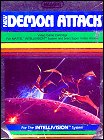 With exclusive rights to sell a home version of the cult arcade hit Phoenix under its belt, Atari sues third-party software house Imagic over its space shooter game Demon Attack, which is somewhat similar to Phoenix – too similar for Atari’s tastes. The two companies settle out of court the following January, with Imagic agreeing to omit the “mothership” level from the version of Demon Attack sold for the Atari 2600; the mothership appears in nearly every other edition of the game for other consoles and computers.
With exclusive rights to sell a home version of the cult arcade hit Phoenix under its belt, Atari sues third-party software house Imagic over its space shooter game Demon Attack, which is somewhat similar to Phoenix – too similar for Atari’s tastes. The two companies settle out of court the following January, with Imagic agreeing to omit the “mothership” level from the version of Demon Attack sold for the Atari 2600; the mothership appears in nearly every other edition of the game for other consoles and computers.
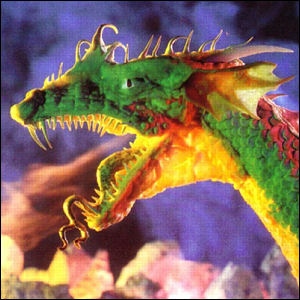 Activision releases Bob Smith’s Dragonfire for the Atari VCS home video game system.
Activision releases Bob Smith’s Dragonfire for the Atari VCS home video game system. ![]()
 Imagic releases the Dragonfire cartridge for the Intellivision home video game system.
Imagic releases the Dragonfire cartridge for the Intellivision home video game system. ![]()
 Activision releases Dracula for the Intellivision home video game system, one of numerous Imagic titles exclusive to that system.
Activision releases Dracula for the Intellivision home video game system, one of numerous Imagic titles exclusive to that system. ![]()
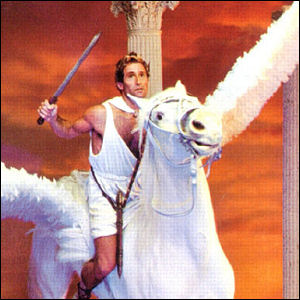 Imagic releases the No Escape! cartridge for the Atari 2600 home video game system.
Imagic releases the No Escape! cartridge for the Atari 2600 home video game system. ![]()
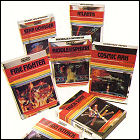 Software company Imagic, which started out marketing games for the Atari VCS before branching out into the Intellivision, Colecovision, home computer and even Odyssey² markets, nixes plans to sell public stock in the company. Shortly afterward, 40 of Imagic’s 170 employees are laid off, with every indiciation that more employees will follow as the company tries to stay afloat. Potential investors are told that Imagic’s initial public offering has been delayed until early 1984, but stock in the company is never sold.
Software company Imagic, which started out marketing games for the Atari VCS before branching out into the Intellivision, Colecovision, home computer and even Odyssey² markets, nixes plans to sell public stock in the company. Shortly afterward, 40 of Imagic’s 170 employees are laid off, with every indiciation that more employees will follow as the company tries to stay afloat. Potential investors are told that Imagic’s initial public offering has been delayed until early 1984, but stock in the company is never sold.